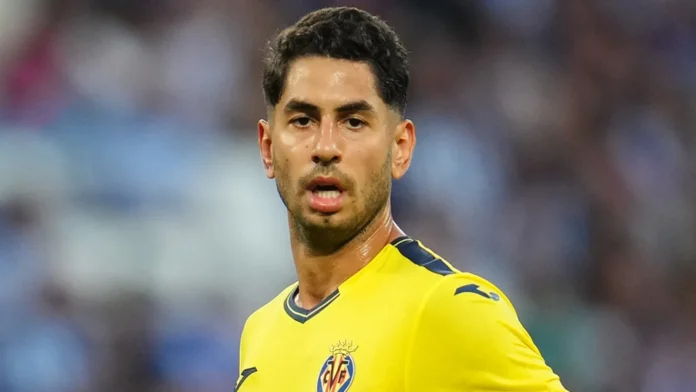Villarreal forward Ayoze Perez has openly criticized LaLiga’s decision to continue league matches following deadly floods in eastern Spain, sparking a conversation about the role of sports during times of national tragedy.
Ayoze Perez’s comments reflect sentiments shared by players, coaches, and fans alike, who questioned the league’s choice to carry on with games despite the significant loss of life and widespread damage.
The Spanish FA postponed seven midweek Cup matches and all games in Valencia’s flood-stricken eastern region, yet LaLiga’s regular-season games proceeded in unaffected areas.
RECOMMENDED:
Last month’s floods in eastern Spain left over 200 people dead and devastated communities, particularly in the Valencia region. The floods swept away homes, disrupted infrastructure, and left many communities grappling with loss and grief.
Under such conditions, the decision to continue with LaLiga matches raised eyebrows, especially as the nation mourned. Coaches such as Barcelona’s Hansi Flick and Atletico Madrid’s Diego Simeone voiced concerns, questioning the logic of playing football in the face of such overwhelming tragedy.
Ayoze Perez expressed his thoughts on Wednesday, emphasizing that the decision to play should not have been left up to coaches and players to comment on. “We shouldn’t have reached the point that coaches and players had to come out and give their opinion, because ultimately it’s so clear… We’re talking about a catastrophe,” Perez stated.
Ayoze Perez stressed the importance of solidarity with those affected, highlighting that in moments like these, “Football comes second, or third. What mattered was all those people affected.”
LaLiga’s decision to continue games in non-affected areas stemmed from the stance taken by LaLiga President Javier Tebas. Tebas defended the decision, stating on November 2 that it was essential for the league to “be on the front line in our workplaces like all workers in other sectors.” His comments were aimed at justifying the league’s decision, arguing that sports professionals, like other workers, should continue with their responsibilities even in challenging times.
However, the justification sparked further criticism, with many viewing the decision as insensitive and focused on business rather than empathy. In contrast, the Spanish FA’s response was more immediate and considerate of the situation, as they postponed seven midweek Cup ties and all games in Valencia’s affected region. Tebas’ insistence on business continuity seemed at odds with the sentiment of the general public and the players.
RECOMMENDED:
Players and Coaches: A United Voice for Compassion
The decision to carry on with matches despite the tragic circumstances led to an emotional response from players and coaches alike. Hansi Flick and Diego Simeone were among those who voiced their discontent, asserting that in light of the floods, football should have taken a backseat.
Flick mentioned that “it made no sense to play,” echoing Simeone’s sentiments. This unity among coaches and players highlighted their empathy and understanding of the situation, contrasting with the league’s business-driven stance.
Ayoze Perez’s Villarreal side was directly impacted by the floods, with their match against Rayo Vallecano postponed in the immediate aftermath. Villarreal resumed play the following week against Deportivo Alaves, but the experience was a somber one. “The minute’s silence (before the match) was very emotional,”Ayoze Perez shared, underscoring how close Villarreal is to Valencia and how deeply the tragedy affected them. “We were so conscious that it was not the best conditions in which to play a game. The decision was not in our hands; we had to play, and so we did. But we all agreed that we shouldn’t have.
The Debate: Should Football Take a Pause During National Crises?
The debate over LaLiga’s decision touches on a larger question: should sports continue during national crises, or should leagues pause out of respect for those affected? For many, football is more than a game; it’s a reflection of community and shared values. When tragedy strikes, the need for empathy and solidarity often outweighs the push for normalcy.
In this instance, the decision to continue playing matches came across to many as insensitive. In times of collective grief, it’s common for sports leagues to temporarily pause, not only out of respect but also to give players, fans, and officials time to process the tragedy. While Tebas argued that continuing play was a way to show resilience, many felt that a pause would have been a more respectful response.
The Role of Sports in Healing and Solidarity
Sports have often been a source of comfort and unity in difficult times, but timing and context are crucial. There’s a fine line between honoring resilience and appearing indifferent.
In some cases, playing matches can provide communities with a sense of hope and distraction from painful realities. However, in this case, the speed with which games resumed and the league’s insistence on continuing matches in unaffected regions seemed, to many, to sideline compassion.
Football has the power to bring people together, but it also has a responsibility to reflect the sentiments of its community. LaLiga’s approach could have been more attuned to the moment by aligning with the Spanish FA’s choice to prioritize postponement, showing solidarity with affected regions rather than moving forward without a pause.





